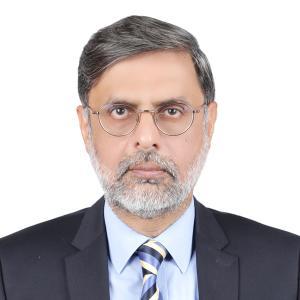Mental Health Promoting Schools Webinar
17 October 2021
Kuwait, 17 October - The United Nations in the State of Kuwait Represented by the Resident Coordinator Office, the WHO Office in Kuwait and UNICEF in partnership with the Ministry of Health and Ministry of Education organized an expert-led webinar to highlight the needs and opportunities for a mental health strategy to be considered, adopted and actioned by all schools in Kuwait. This webinar also aimed to build consensus into the mental health needs and interests of children and adolescents whilst highlighting the responsibility and respective contribution of a wide range of stakeholders. The webinar will form an early stage of a mental health policy planning exercise for schools by identifying the need for and key features of a school mental health policy.
Mental health problems can manifest in children as sadness or worry, attention deficits, behavioural difficulties, and deterioration in school performance. Early screening and deployment of effective interventions can reduce the likelihood of continuity and exacerbation of mental health associated impairments into adulthood. The rise in violence, drug addiction and depression amongst adolescents in Kuwait over the past few years has been alarming. A number of contributory factors have been found to exert impact on mental health; these include stressful events in early life such as child abuse and neglect, social isolation and negative lifestyle habits including increased passive screen time and lack of physical activity. The pandemic has underscored the urgency of putting in place collective action plans and policies that protect those most vulnerable and promote their wellbeing. Plans must recognise that children’s and adolescents’ development stage can influence his/her degree of vulnerability to mental health disorders. Accordingly, schools must be well positioned and prepared to identify the need for early interventions to reduce risk factors for mental health disorders and promote protective factors.
Dr. Tarek El-Sheikh, Representative of United Nations Secretary-General Resident coordinator noted that “Schools need to adopt innovative solutions to keep linkages open with students, particularly in states of emergencies,” further emphasizing that every school should be a mental health-promoting school through a holistic approach that builds on relationships with students, families and teachers.
Dr. Assad Hafeez, WHO Representative in Kuwait called all stakeholders to attend to the global statistics which reaffirm a need for urgent action, Dr. Hafeez followed that “globally the largest burden of mental health falls in young people.”
The Ministry of Health was represented by Dr. Abdullah AlSanad, who left a vivid image of friendships of early childhood and their formative impact on a child’s development. He stressed that “Schools are central to nurturing a child’s skills of social connection and emotional regulation,” and that the Ministry of Health in Kuwait in partnership with the Departments of School Health and Primary Healthcare are in the midst of preparing a Mental health plan for school aged pupils.
Schools are one of several critical systems of care that ensure the delivery of essential health services to children including protection, and psycho-social support. The unprecedented length of school closures imposed because of COVID-19 may have thus contributed to significant imperilments to children’s overall wellbeing and development, not just their learning. With school reopening plans and the focus on accelerating learning to remediate losses, it is crucial that effective mental health and wellbeing plans are put in place so as not to lose sight of the unequivocal link between mental health and educational attainment. Equally so, these plans must necessarily factor in teacher preparedness to take on this responsibility and their personal wellbeing by mainstreaming into them the requisite capacity building exercises, tools, and modalities for the sharing of best practices by educational psychologists, and considerations to the appropriate strategies to mitigate teacher burnout. Indeed, teachers are important role models to students and formative agents in shaping their developmental experience and motivation.
Global statistics and evidence-based interventions guided the discussion thereafter, highlighting potential opportunities to tap into the promise of innovative technologies such as technology assisted teachers’ training platforms, Chatbots that aid the implementation of interventions and a games-based platform to promote the uptake of life skills and participation in students. The webinar ended with a call to continue the conversation towards actional mental health strategies for schools across the nation.
Speakers in the webinar were: Dr. Bibi Alamiri, MD, ScD Kuwait Center for Mental Health Adult, Child & Adolescent Psychiatrist; Ms. Shaimaa Allami Psychologist at Ministry of Education Department of Mental Health and Wellbeing; Dr. Tatjana Colin Head of UNICEF Office in Kuwait, Chief, Early Childhood Development UNICEF; Professor Atif Rahman Professor of Child Psychiatry, University of Liverpool 5. Ms. Fatema Albader Middle school English Teacher, Bayan Bilingual School Kuwait.
End

Dr Hafeez has been trained in medicine and public health in Pakistan, UK and the US with a Masters degree in Epidemiology and a PhD from the UK.
On 9 March 2008, Asmae joined the United Nations Resident Coordinator and United Nations Development Programme Resident Representative Office in the State of Kuwait as Executive and Knowledge Associate. With over 15 years of relatively significant experience, a track record of strong relationship and partnership building with National and International stakeholders and host government, authorities and institutions, Civil Society Organizations, mass Media and the Diplomatic community in Kuwait. Served as a Coordination, Partnership and Communication Officer, contributing to continuous process improvement in the face of rapidly evolving and changing environments. Asmae is also supporting conference management and high-level missions’ coordination, maintenance of UN protocol procedures and high-level representation. Have supported and contributed to the success of large international conferences, signature events/activities such as the UN General Assembly summit, Agenda 2030 SDGs good summit, UN Day celebrations, Syria pledging conferences 2 and 3, Iraq Reconstruction Conference and the Yemeni Talks, the Arab League Summit, the Arab-African Summit, Special Human Rights Procedures/Rapporteurs and the UN Security Council and UNTalks forums.
Asmae’ s background lies in leading and supporting operations, teams, and processes to propel advocacy initiatives while realizing enhanced corporate success and productivity. She has supported the UNRCO in the
identification and implementation of visionary strategic objectives set by the United Nations Country Team to achieve the 2030 Agenda for Sustainable Development in accordance with the County’s vision and aspirations. With a developed political acumen and negotiation skills and familiarity with the local and regional context, Asmae can effectively advocate and communicate with partners the strategic objectives of the UN Country Team and provide sound assistance in the promotion of United Nations global communications and advocacy priorities through new advocacy tools building and media relations, providing substantive support for digital communications and publications and branding management.
Asmae holds a Master’s degree in Social Science, in International Management from the University of Liverpool 2015.






